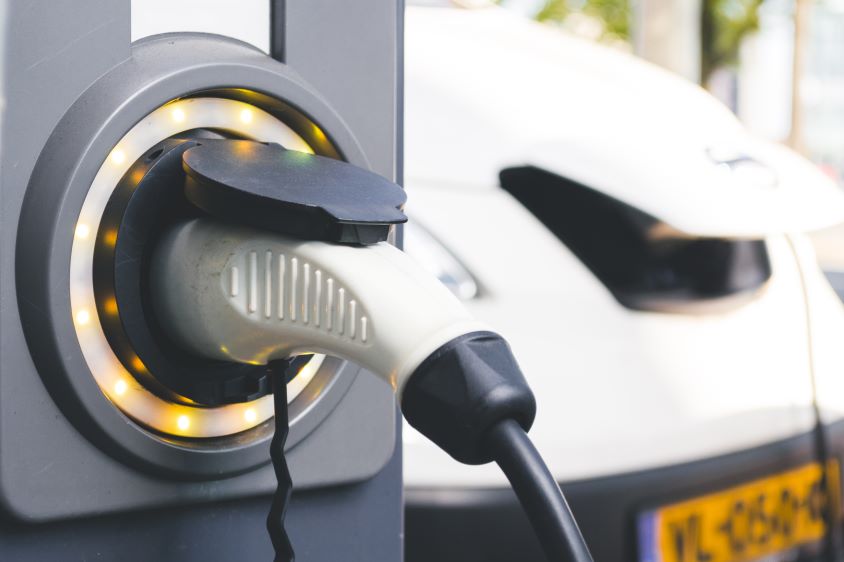Electric car tax benefits: what you need to know
Written by: Simon Pavey, Last updated:14th February 2023

If your business is still reliant on petrol and diesel vehicles for your day-to-day operations, there has never been a better time to make the transition to an electric fleet.
Recent trends in company vehicle preferences and changes in government tax rules and incentives should leave you in little doubt that the future of commercial transportation is electric. So it’s worth doing some research and finding out more about the financial and tax advantages of electric cars.
The shift towards electric fleets
A third of fleet managers across the UK expect more than half of their company cars to be electric in five years’ time. That’s according to a survey by Go Ultra Low, a joint government and industry campaign focused on promoting the adoption of electric vehicles (EVs).
Seven out of ten fleet managers and decision-makers said they were planning to buy an electric car within two years. Half predicted an increase in the adoption of EVs in commercial fleets as a result of changes to benefit in kind (BIK) taxes on electric cars, which we explore in more detail below.
According to Go Ultra Low, the fleet sector accounted for more than half (53.3 per cent) of the UK’s 2.3 million vehicle registrations in 2019 and is viewed as a “pivotal player in accelerating EV adoption”.
Poppy Welch, head of the campaign, said: “There are around 60 electric models now available and most are able to travel more than 200 miles on a single charge. The decisions fleet managers make about EVs today will be critical in driving mass adoption tomorrow.”
In November 2020, the government said the UK had taken “another historic step on the road to ending its contribution to climate change” by announcing the end of the sale of new petrol and diesel cars in the country by 2030.
These developments suggest that any business hoping to keep up with the accelerating move towards a zero-emissions future needs to plan the electrification of its fleet.
For many companies, this will be a major undertaking that requires a lot of thought and planning. On the positive side, there are many advantages of electric cars, including financial incentives that will help your firm’s bottom line.
Electric car tax advantages
Taxation is one of the key topics you’ll need to take into account when you’re considering the various financial benefits and costs associated with electric fleets.
As far as road tax on electric cars is concerned, the good news is that government measures recently brought into effect will keep rates to a minimum for the near future. Company car tax (CCT) on electric cars was reduced to zero in 2020-21 and will be set at one per cent in 2021-22 and two per cent in 2022-23.
There have also been changes in the rules covering vehicle tax for hybrid cars, with the government introducing five new CCT bands for plug-in hybrid vehicles that emit 1-50g of CO2/km. These bands are designed to provide the biggest tax incentives for EVs that have the greatest electric range, meaning they can drive longer distances with zero emissions.
Furthermore, it was also confirmed recently that fleet operators buying vans and trucks will benefit from a new ‘super deduction’ tax relief. The Treasury said this deduction will allow companies to reduce their tax bill by up to 25p for every £1 they invest in new plant and machinery, subject to certain criteria.
A spokesman for HM Revenue and Customs told Fleet News that heavy and light commercial vehicles can qualify for this benefit if they meet relevant conditions – being new and unused, for example.
Benefit in kind taxes and electric cars
BIK taxation is another key area you should be familiar with if the electrification of your fleet will be a priority for your business in the coming years.
Company car tax essentially has two components: what the business pays and what the employee pays. The amount the organisation pays is based on the value of the vehicle (known as its ‘P11D’ value) and its CO2 emissions. Your national insurance contributions also relate to your fleet’s emissions and the P11D value of your vehicles.
The employee’s tax liability is slightly more complicated and takes into account their company car’s P11D value and BIK band, as well as their individual income tax bracket.
For example, someone in the 20 per cent tax band, using an electric car worth £30,000 that falls in the one per cent BIK band, will pay £60 in BIK tax. Since the BIK bands are higher for cars that emit more CO2, users of these vehicles will be subject to higher tax rates.
According to Go Ultra Low, a company car driver using an electric Peugeot 208 would save the equivalent of £8,063 in BIK tax over a typical three-year agreement, compared to the petrol model.
The government has confirmed that BIK brackets will be kept low for electric cars over the coming years. The rate is due to increase to two per cent in 2022 and will stay at that level until the 2024-25 tax year.
Capital allowances
Companies are able to claim capital allowances on cars they buy and use to do business. This means you can deduct part of the value of the vehicles in your fleet from your profits, thereby reducing your tax bill.
Like BIK taxes and national insurance, the allowances you can claim for your fleet partly depend on your vehicles’ CO2 emissions. Between April 2015 and April 2018, it was possible to deduct the full value of new cars with emissions of 75g/km or less. In April 2018, this threshold dropped to 50g/km, and since April 2021 only zero-emission cars have qualified for a full deduction. This provides a strong incentive for businesses to shift to EVs if they want to make the most of capital allowances.
Salary sacrifice
Another concept to consider as you progress with the electrification of your fleet is salary sacrifice. This allows employees to exchange part of their salary for a non-cash benefit, such as a company car, and can be a good way to encourage adoption of EVs.
People who choose to take part will have a single monthly payment to cover costs such as leasing, maintenance and insurance taken from their pay every month, before income tax and national insurance. This can be mutually beneficial for employer and employee, since the business pays less in national insurance and supports the shift towards zero-emissions motoring, while the worker pays tax on a reduced portion of their salary.
As the transition towards EVs and fully electric fleets gathers pace in the coming years, it will become increasingly important for businesses to stay up to date on changes to taxation and financial regulations relating to electric cars.
Passing this information on to your employees and proactively promoting the use of EVs will help to ensure your business keeps up with the times.
Want to know more about how you can save money through switching to electric vehicles? Get in touch with our expert team today!
back




